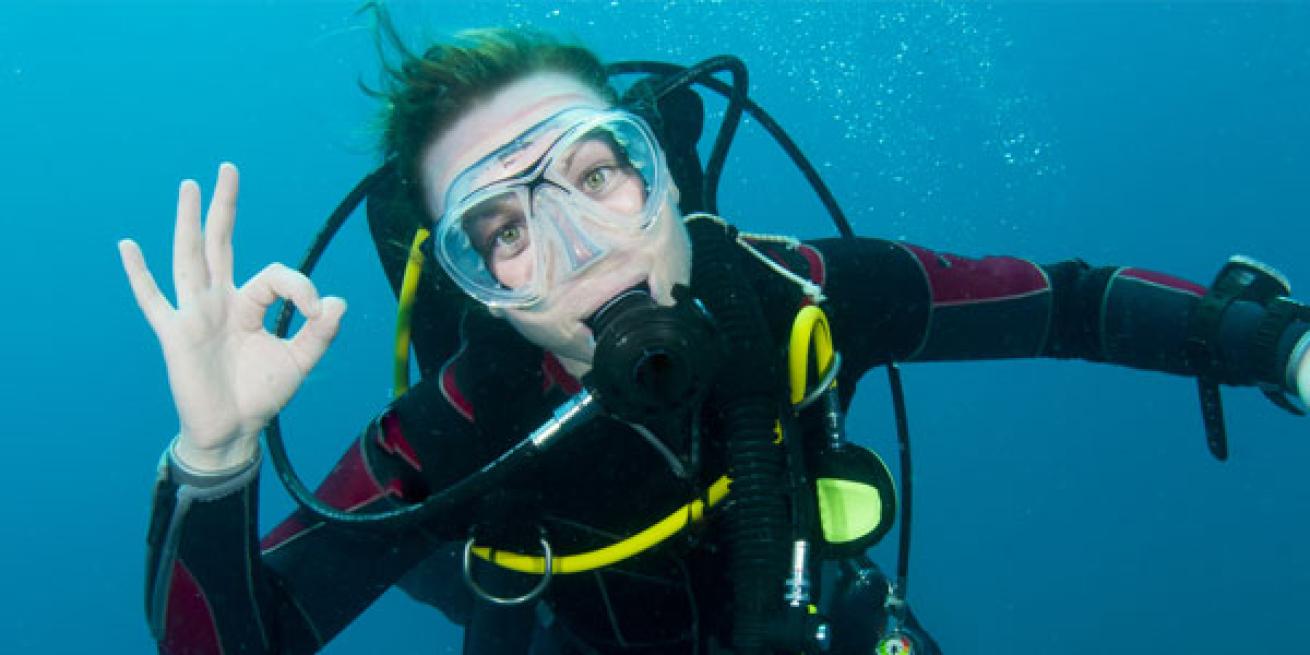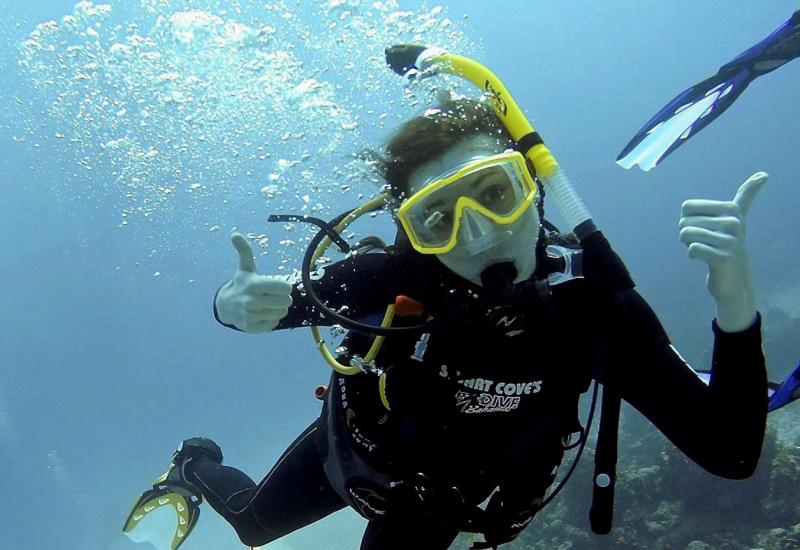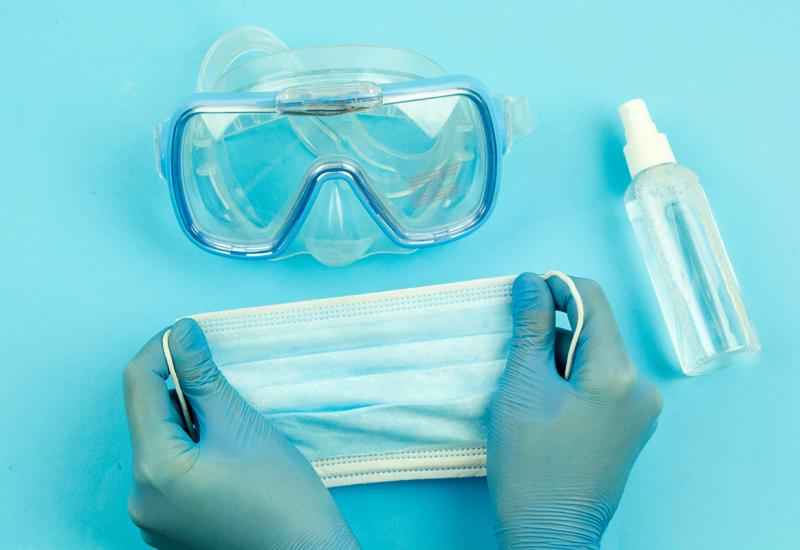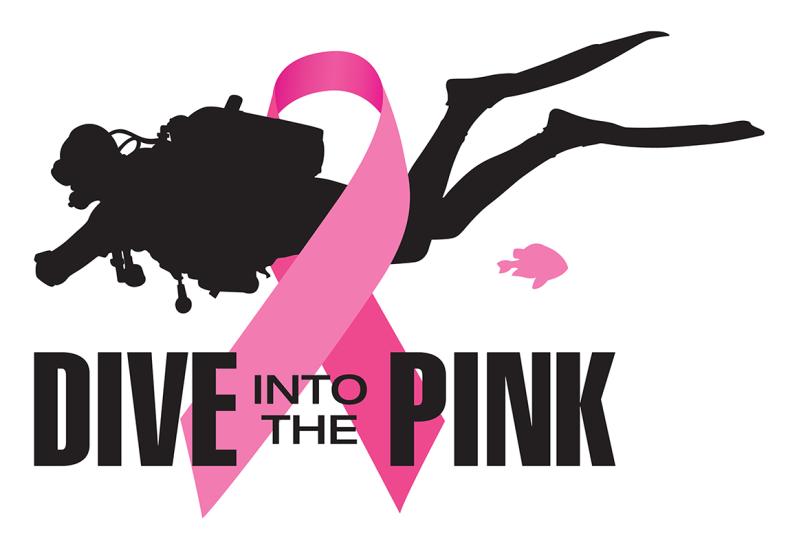Ask DAN: Heart Issues & Cardio Medications

Scuba Diving Health | Heart Issues & Cardio Medications
Heart disease and its related issues affect nearly one in three American adults, according to the American Heart Association, and divers are no exception. As incidents of heart disease increase nationwide, the number of calls DAN receives about heart issues and their diving-related complications goes up as well. From diving after surgical procedures to learning about new medications, divers continue to demonstrate how a medical setback does not have to mean the end of a diving career. However, as with every other medical issue, it's critical to know the facts, and because 30 percent of the annual fatalities associated with recreational diving are the direct result of catastrophic cardiac events, here's a look at the most common heart issues among divers, their treatments and how to decide whether diving is worth the risk.
The Heart of the Matter
The following are the top five heart conditions among divers who call DAN's info line or emergency medical hotline. Here, we'll define each and explain any specific concerns or limitations these put on divers.
Hypertension
It's more commonly known as high blood pressure, and it's one of the most asked about topics relating to heart disease. It makes sense, as the condition affects an increasing number of people every year. Generally speaking, blood pressure registering higher than 140 systolic and 90 diastolic (or "140 over 90") can be considered hypertensive. Stroke is the most immediate concern, especially in cases of extremely high blood pressure, but long-term issues can also include coronary artery disease, kidney disease, congestive heart failure and vision problems. There are a number of medications available to sufferers of hypertension, and provided the condition is under control with no evidence of the long-term problems, divers can usually continue safely in the sport.
Coronary Artery Disease
This condition, also known as coronary atherosclerosis, is the accumulation of plaque on the arterial walls. Over time, as cholesterol and other materials are deposited along arterial walls, the arteries themselves become blocked, and blood flow is restricted. Coronary artery disease commonly leads to heart attacks, and it is simply not compatible with diving. The condition depletes blood flow and oxygen supply to the body's muscles, which is naturally exacerbated by the demands and exertion inherent to diving. Sadly, many divers don't know they suffer from coronary artery disease until it's too late. Detection is key to controlling this condition, and only by controlling it can divers make their way back to the water. If you're an older diver, a diver whose diet regularly includes high levels of fat and cholesterol, if you smoke, suffer from hypertension or have a family history of heart disease, see your doctor and schedule regular checkups to monitor your risk.
Myocardial Infarction
Most of us know this issue by its informal name--the heart attack. The attack itself is actually damage to the muscles of the heart caused by a lack of oxygen due to interrupted blood flow to the muscle tissue. The more deprived of oxygen the heart becomes, the more damage it sustains, and if the blood and oxygen supplies decrease far enough, the heart can start to beat erratically and stop altogether. Obviously, you don't want to dive if you suspect that you are having a heart attack. If you experience tightness in the chest, pain radiating down your arm or shortness of breath, do not enter the water; do seek immediate medical attention. If your lifestyle, diet or family history suggests you might be susceptible to coronary artery disease, get yourself checked to ensure your arteries and heart are in good shape.
Dysrhythmias and Murmurs
These terms are often mistaken as the same thing, but they are actually very different conditions. Dysrhythmia is an abnormal heartbeat. It's the rare individual who never experiences their "heart skipping a beat." But when your heart's rhythm is interrupted frequently or continuously, it's time to pay attention. Serious dysrhythmias can restrict blood flow and cause loss of consciousness. Not all dysrhythmias preclude you from diving, but the more severe cases do.
Heart murmurs are the extra sounds caused by abnormal blood flow. Murmurs are most often detected during chest examinations with a stethoscope. Murmurs can represent a range of conditions, from a temporary increase in blood flow to a damaged heart valve. And it's important to know what kind of murmur you have. The more severe heart murmurs, such as aortic and mitral stenosis, will preclude diving. The exercise inherent to diving overtaxes the heart muscle, and that combined with restricted blood flow can lead to loss of consciousness or heart attack. Mitral stenosis also limits the heart's ability to respond to exercise, which over time, can lead to congestive heart failure. Mild heart murmurs may allow you to continue diving, at least for a while, provided you've undergone a comprehensive medical evaluation.
After the Fix
So, what if your heart condition has been diagnosed and treated with a procedure like bypass surgery, angioplasty or the implantation of a pacemaker? Is it safe to get back in the water?
The effects of some of these procedures are nothing short of miraculous. Blood flow, oxygen levels and, in turn, energy and health are often restored, and many patients return to healthy, active lifestyles. This may even include a return to diving.
In the case of bypass or angioplasty, two things must happen before considering a return to diving: 1) It must be determined that the heart muscle did not sustain severe or permanent damage; and 2) The body must have sufficient time to heal. This can take as long as a year or two, so be patient. If these two criteria are met, it will be up to your physician to determine the extent of your recovery, your exercise tolerance and whether you can dive.
When it comes to pacemakers, blanket statements precluding diving are not generally made because not enough is known about them. Of course, diving with a pacemaker means you are entering relatively uncharted territory and running the risks associated with it. Diving with a pacemaker is usually only acceptable for recreational diving, and even then, two important factors must be determined: Why did you need the pacemaker implanted in the first place? And, is your pacemaker rated to perform at depth? If the answer to the second question is no, you absolutely cannot dive. If the answer to the first question is a condition that's controlled but not cured by the pacemaker, further evaluation is warranted. If your pacemaker is helping to control one of the few heart conditions that may still allow you to dive, diving may be possible, but always err on the side of caution and take it slow.
Cardio Medications
Many heart conditions are treated and controlled through medication. As with all medication discussions, there are entirely too many to name in a single column, but here is collection of the most common medications used to treat cardiac issues and how they impact divers.
Beta Blockers These common medications are used to treat conditions like hypertension and coronary artery disease. Their biggest drawback in relation to diving is their tendency to restrict the heart's function during exercise. Because restricted heart function leads to restricted blood and oxygen flow, which in turn leads to loss of consciousness, divers taking beta blockers must be cleared by a medical professional for high levels of exercise before considering diving.
ACE Inhibitors
Angiotension-converting enzyme (ACE) inhibitors are often the preferred medication of those who exercise regularly, as they have fewer exercise effects than beta blockers. While this is good news to divers, they still need to be aware of the other side effects. Namely coughing and airway swelling, which, while tolerable on the surface, can present a significant problem underwater.
Calcium Channel Blockers
These are another type of medication used to treat hypertension and coronary artery disease, but they don't present the same side effects and risks other medications do. Their function is generally to relax the walls of blood vessels, thereby increasing blood flow and lowering blood pressure. This is good news to divers, as the medication is generally more conducive to diving (provided the condition it's treating isn't keeping you out of the water). However, divers should be aware that because of the effectiveness of calcium channel blockers in reducing blood pressure, sudden changes in posture (sitting to standing, or head-down to head-up if you're underwater) can lead to an extreme drop in blood pressure, which can bring on dizziness and fainting.
Diuretics
Diuretics help lower blood pressure by reducing the amount of excess water and salt in the body. With few side effects, this is one of the most diver-friendly heart medications. However, because of the reduction in body fluid, it's important for divers to drink lots of fluids to prevent dehydration, especially in warm temperatures.
Antiarrhythmics
These medications help maintain a stable and regular heartbeat, as in the cases of dysrhythmias and murmurs. Although the side effects of antiarrhythmic medications are not necessarily known to produce side effects immediately dangerous to divers, as discussed earlier, if a patient's dysrhythmic condition is serious enough to require medication, diving is typically not permitted.
Anticoagulants
These are also known as blood thinners and any diver taking a coagulant needs to be very careful. One of the most common and dangerous side effects is a potential for excessive bleeding, even from a seemingly benign injury like an ear or sinus barotrauma. And if decompression illness occurs, there is an even greater risk of significant bleeding in the brain or spinal cord. Divers taking anticoagulants must be able to equalize without difficulty, and they should follow conservative dive profiles to help reduce the risk of DCI.
Lower The Odds
Though there is no way to guarantee you'll never experience heart disease in any form, there are a number of things you can do to lower your risk:
Eat sensibly. Avoid diets high in fat and cholesterol.
Exercise regularly. It improves and helps maintain cardiovascular fitness.
Don't smoke. It's just bad for you.
Know your family history. Even if you follow every healthy rule in the book, if your family has a history of heart disease, stay on top of it.
What is DAN?
Divers Alert Network (DAN) is a 501(c)(3) nonprofit medical and research organization dedicated to the safety and health of recreational scuba divers.
For diving emergencies, call the DAN 24-Hour Diving Emergency Hotline: (919) 684-4DAN (collect calls accepted).
For nonemergency questions, call the DAN Medical Information Line at (919) 684-2948.
Additional information can be found at www.diversalertnetwork.org.
--
Scuba Diver photo from Shutterstock.com

Heart disease and its related issues affect nearly one in three American adults, according to the American Heart Association, and divers are no exception. As incidents of heart disease increase nationwide, the number of calls DAN receives about heart issues and their diving-related complications goes up as well. From diving after surgical procedures to learning about new medications, divers continue to demonstrate how a medical setback does not have to mean the end of a diving career. However, as with every other medical issue, it's critical to know the facts, and because 30 percent of the annual fatalities associated with recreational diving are the direct result of catastrophic cardiac events, here's a look at the most common heart issues among divers, their treatments and how to decide whether diving is worth the risk.
The Heart of the Matter
The following are the top five heart conditions among divers who call DAN's info line or emergency medical hotline. Here, we'll define each and explain any specific concerns or limitations these put on divers.
Hypertension
It's more commonly known as high blood pressure, and it's one of the most asked about topics relating to heart disease. It makes sense, as the condition affects an increasing number of people every year. Generally speaking, blood pressure registering higher than 140 systolic and 90 diastolic (or "140 over 90") can be considered hypertensive. Stroke is the most immediate concern, especially in cases of extremely high blood pressure, but long-term issues can also include coronary artery disease, kidney disease, congestive heart failure and vision problems. There are a number of medications available to sufferers of hypertension, and provided the condition is under control with no evidence of the long-term problems, divers can usually continue safely in the sport.
Coronary Artery Disease
This condition, also known as coronary atherosclerosis, is the accumulation of plaque on the arterial walls. Over time, as cholesterol and other materials are deposited along arterial walls, the arteries themselves become blocked, and blood flow is restricted. Coronary artery disease commonly leads to heart attacks, and it is simply not compatible with diving. The condition depletes blood flow and oxygen supply to the body's muscles, which is naturally exacerbated by the demands and exertion inherent to diving. Sadly, many divers don't know they suffer from coronary artery disease until it's too late. Detection is key to controlling this condition, and only by controlling it can divers make their way back to the water. If you're an older diver, a diver whose diet regularly includes high levels of fat and cholesterol, if you smoke, suffer from hypertension or have a family history of heart disease, see your doctor and schedule regular checkups to monitor your risk.
Myocardial Infarction
Most of us know this issue by its informal name--the heart attack. The attack itself is actually damage to the muscles of the heart caused by a lack of oxygen due to interrupted blood flow to the muscle tissue. The more deprived of oxygen the heart becomes, the more damage it sustains, and if the blood and oxygen supplies decrease far enough, the heart can start to beat erratically and stop altogether. Obviously, you don't want to dive if you suspect that you are having a heart attack. If you experience tightness in the chest, pain radiating down your arm or shortness of breath, do not enter the water; do seek immediate medical attention. If your lifestyle, diet or family history suggests you might be susceptible to coronary artery disease, get yourself checked to ensure your arteries and heart are in good shape.
Dysrhythmias and Murmurs
These terms are often mistaken as the same thing, but they are actually very different conditions. Dysrhythmia is an abnormal heartbeat. It's the rare individual who never experiences their "heart skipping a beat." But when your heart's rhythm is interrupted frequently or continuously, it's time to pay attention. Serious dysrhythmias can restrict blood flow and cause loss of consciousness. Not all dysrhythmias preclude you from diving, but the more severe cases do.
Heart murmurs are the extra sounds caused by abnormal blood flow. Murmurs are most often detected during chest examinations with a stethoscope. Murmurs can represent a range of conditions, from a temporary increase in blood flow to a damaged heart valve. And it's important to know what kind of murmur you have. The more severe heart murmurs, such as aortic and mitral stenosis, will preclude diving. The exercise inherent to diving overtaxes the heart muscle, and that combined with restricted blood flow can lead to loss of consciousness or heart attack. Mitral stenosis also limits the heart's ability to respond to exercise, which over time, can lead to congestive heart failure. Mild heart murmurs may allow you to continue diving, at least for a while, provided you've undergone a comprehensive medical evaluation.
After the Fix
So, what if your heart condition has been diagnosed and treated with a procedure like bypass surgery, angioplasty or the implantation of a pacemaker? Is it safe to get back in the water?
The effects of some of these procedures are nothing short of miraculous. Blood flow, oxygen levels and, in turn, energy and health are often restored, and many patients return to healthy, active lifestyles. This may even include a return to diving.
In the case of bypass or angioplasty, two things must happen before considering a return to diving: 1) It must be determined that the heart muscle did not sustain severe or permanent damage; and 2) The body must have sufficient time to heal. This can take as long as a year or two, so be patient. If these two criteria are met, it will be up to your physician to determine the extent of your recovery, your exercise tolerance and whether you can dive.
When it comes to pacemakers, blanket statements precluding diving are not generally made because not enough is known about them. Of course, diving with a pacemaker means you are entering relatively uncharted territory and running the risks associated with it. Diving with a pacemaker is usually only acceptable for recreational diving, and even then, two important factors must be determined: Why did you need the pacemaker implanted in the first place? And, is your pacemaker rated to perform at depth? If the answer to the second question is no, you absolutely cannot dive. If the answer to the first question is a condition that's controlled but not cured by the pacemaker, further evaluation is warranted. If your pacemaker is helping to control one of the few heart conditions that may still allow you to dive, diving may be possible, but always err on the side of caution and take it slow.
Cardio Medications
Many heart conditions are treated and controlled through medication. As with all medication discussions, there are entirely too many to name in a single column, but here is collection of the most common medications used to treat cardiac issues and how they impact divers.
Beta Blockers These common medications are used to treat conditions like hypertension and coronary artery disease. Their biggest drawback in relation to diving is their tendency to restrict the heart's function during exercise. Because restricted heart function leads to restricted blood and oxygen flow, which in turn leads to loss of consciousness, divers taking beta blockers must be cleared by a medical professional for high levels of exercise before considering diving.
ACE Inhibitors
Angiotension-converting enzyme (ACE) inhibitors are often the preferred medication of those who exercise regularly, as they have fewer exercise effects than beta blockers. While this is good news to divers, they still need to be aware of the other side effects. Namely coughing and airway swelling, which, while tolerable on the surface, can present a significant problem underwater.
Calcium Channel Blockers
These are another type of medication used to treat hypertension and coronary artery disease, but they don't present the same side effects and risks other medications do. Their function is generally to relax the walls of blood vessels, thereby increasing blood flow and lowering blood pressure. This is good news to divers, as the medication is generally more conducive to diving (provided the condition it's treating isn't keeping you out of the water). However, divers should be aware that because of the effectiveness of calcium channel blockers in reducing blood pressure, sudden changes in posture (sitting to standing, or head-down to head-up if you're underwater) can lead to an extreme drop in blood pressure, which can bring on dizziness and fainting.
Diuretics
Diuretics help lower blood pressure by reducing the amount of excess water and salt in the body. With few side effects, this is one of the most diver-friendly heart medications. However, because of the reduction in body fluid, it's important for divers to drink lots of fluids to prevent dehydration, especially in warm temperatures.
Antiarrhythmics
These medications help maintain a stable and regular heartbeat, as in the cases of dysrhythmias and murmurs. Although the side effects of antiarrhythmic medications are not necessarily known to produce side effects immediately dangerous to divers, as discussed earlier, if a patient's dysrhythmic condition is serious enough to require medication, diving is typically not permitted.
Anticoagulants
These are also known as blood thinners and any diver taking a coagulant needs to be very careful. One of the most common and dangerous side effects is a potential for excessive bleeding, even from a seemingly benign injury like an ear or sinus barotrauma. And if decompression illness occurs, there is an even greater risk of significant bleeding in the brain or spinal cord. Divers taking anticoagulants must be able to equalize without difficulty, and they should follow conservative dive profiles to help reduce the risk of DCI.
Lower The Odds
Though there is no way to guarantee you'll never experience heart disease in any form, there are a number of things you can do to lower your risk:
Eat sensibly. Avoid diets high in fat and cholesterol.
Exercise regularly. It improves and helps maintain cardiovascular fitness.
Don't smoke. It's just bad for you.
Know your family history. Even if you follow every healthy rule in the book, if your family has a history of heart disease, stay on top of it.
What is DAN?
Divers Alert Network (DAN) is a 501(c)(3) nonprofit medical and research organization dedicated to the safety and health of recreational scuba divers.
For diving emergencies, call the DAN 24-Hour Diving Emergency Hotline: (919) 684-4DAN (collect calls accepted).
For nonemergency questions, call the DAN Medical Information Line at (919) 684-2948.
Additional information can be found at www.diversalertnetwork.org.
--
Scuba Diver photo from Shutterstock.com










